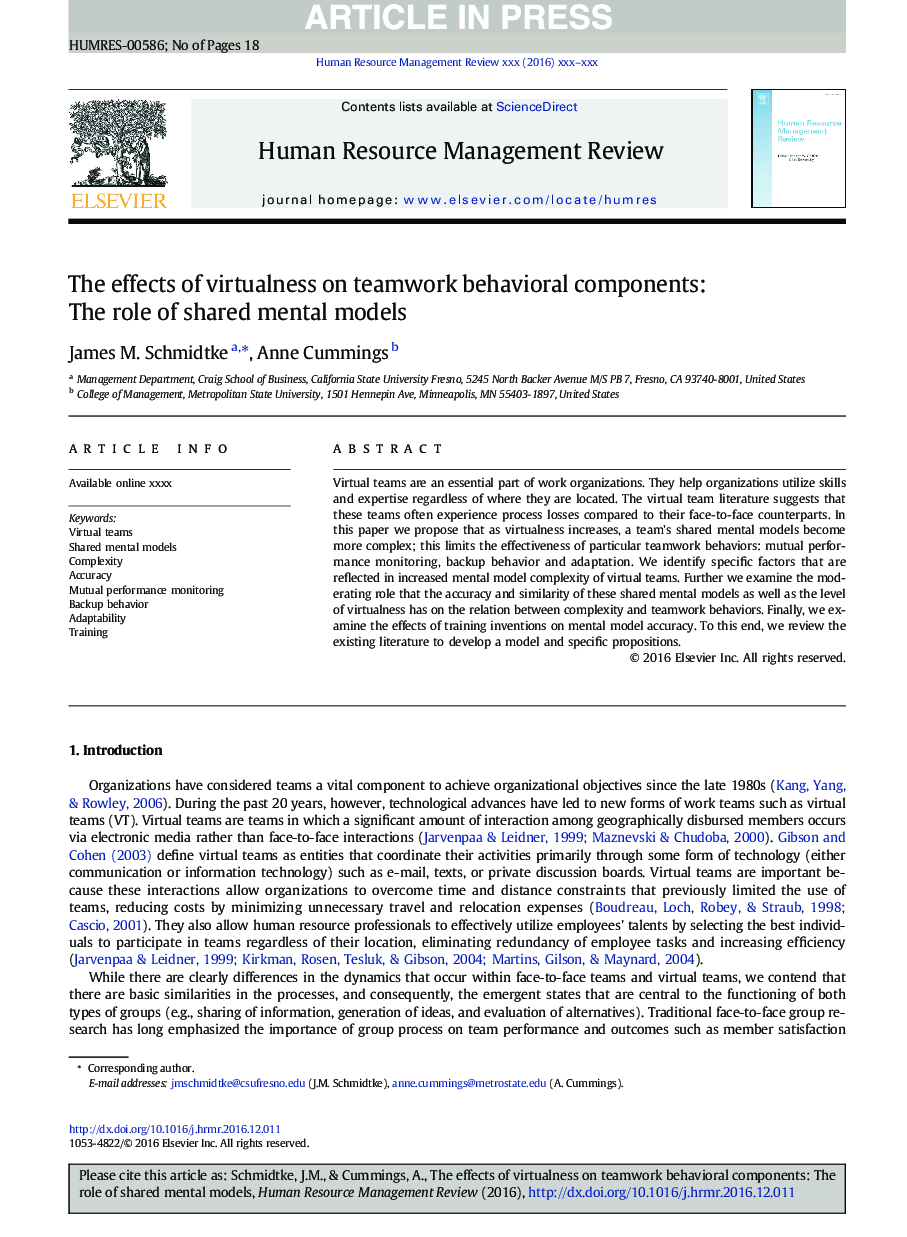| Article ID | Journal | Published Year | Pages | File Type |
|---|---|---|---|---|
| 5033613 | Human Resource Management Review | 2017 | 18 Pages |
Abstract
Virtual teams are an essential part of work organizations. They help organizations utilize skills and expertise regardless of where they are located. The virtual team literature suggests that these teams often experience process losses compared to their face-to-face counterparts. In this paper we propose that as virtualness increases, a team's shared mental models become more complex; this limits the effectiveness of particular teamwork behaviors: mutual performance monitoring, backup behavior and adaptation. We identify specific factors that are reflected in increased mental model complexity of virtual teams. Further we examine the moderating role that the accuracy and similarity of these shared mental models as well as the level of virtualness has on the relation between complexity and teamwork behaviors. Finally, we examine the effects of training inventions on mental model accuracy. To this end, we review the existing literature to develop a model and specific propositions.
Related Topics
Social Sciences and Humanities
Business, Management and Accounting
Marketing
Authors
James M. Schmidtke, Anne Cummings,
